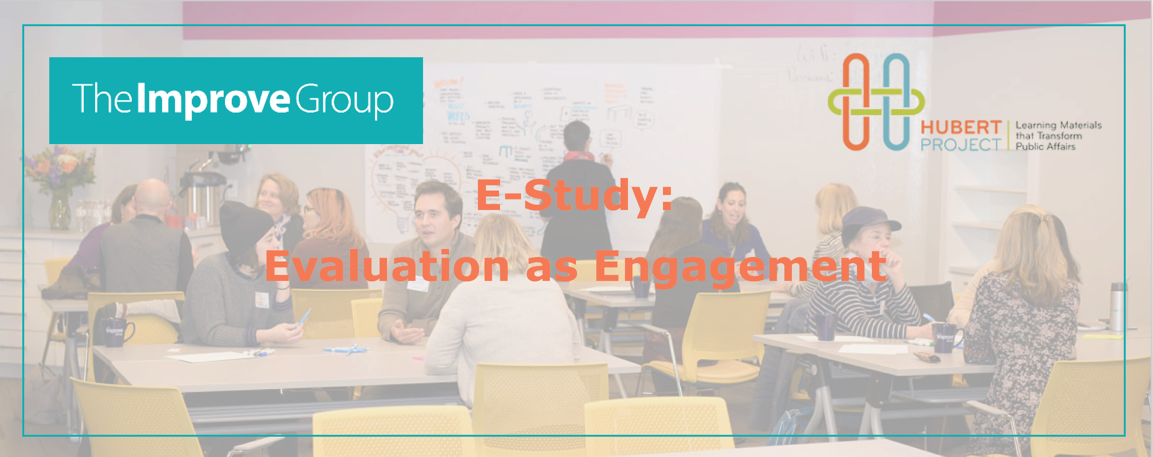
Traditional evaluation approaches can miss important information by failing to account for context or differences across communities. Using a Community-Responsive Approach to evaluation engages stakeholders for better data, better relationships, and more fun!
Ultimately, community members know their communities best.
Community members and stakeholders can provide critical input to evaluators in every stage of an evaluation – something The Improve Group has learned yields the most comprehensive and authentic findings.
To share our lessons learned, The Improve Group Founder and CEO Leah Goldstein Moses has created an E-Study on the importance of community engagement in evaluation. This E-Study was developed for the Hubert Project, an open-source resource for public affairs educators based at the Humphrey School of Public Affairs. In the E-Study, Leah shares The Improve Group’s model for engaging community members in evaluation, our Community-Responsive ApproachSM.
About the E-Study
The new E-Study features two clients of The Improve Group that are masters of working effectively in their communities. African Immigrant Services works to increase civic engagement among communities of color to overcome barriers. Urban Roots is a Saint Paul organization that works to empower youth through nature. The learning modules in this E-Study speak to the importance of community engagement in every step of evaluation, from defining what is being evaluated to sharing the results.
For Urban Roots, using a Community-Responsive Approach meant getting more in-depth, authentic answers from youth through more appropriate evaluation methods, like youth interviewing each other or storytelling. At African Immigrant Services, stakeholder involvement ensured they worked towards a community vision of success – and that the stories of a community are not filtered through the lens of someone else.
About our Community-Responsive Approach
Through hundreds of evaluations over the last 17 years, The Improve Group team developed and practices a Community-Responsive ApproachSM to ensure that the unique perspectives of all affected communities and stakeholder groups are represented in the evaluation process. By being responsive to each community’s distinct characteristics and by involving individual community stakeholders in our evaluation design, we are more likely to hear authentic experiences, concerns, and results.
We developed our Community-Responsive Approach based on what we noticed was working well, such as:
- Engaging community members as advisors
- Identifying and enlisting community experts to contribute to and lead aspects of the evaluation
- Using multiple methods of data collection and analysis
- Using a multi-phased, iterative approach that allows you to layer learning from multiple community members in each phase
Check out more in Leah’s E-Study, “Evaluation as Engagement.”
